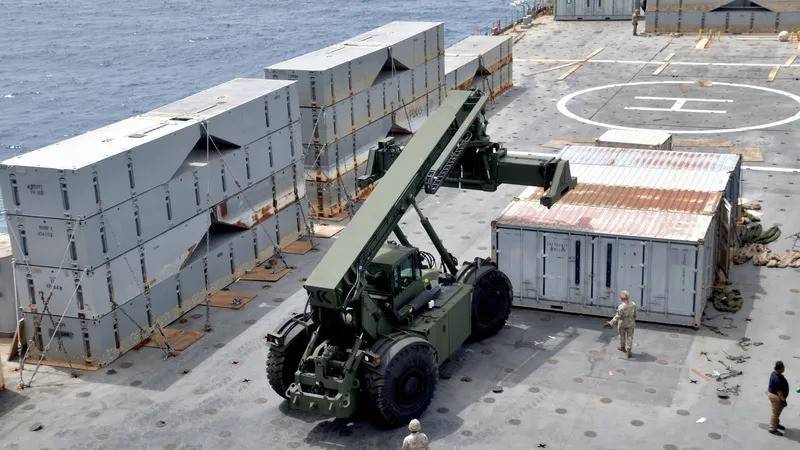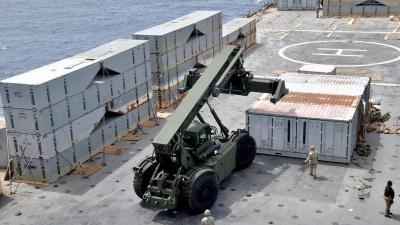The United States will soon begin using a floating dock to receive aid directed to Gaza, but alleviating the humanitarian crisis in the enclave seems a distant goal. Distribution operations are expected to face numerous difficulties, posing a real test for President Joe Biden's administration, which has pledged to ease the humanitarian crisis in Gaza.
On Thursday, a White House spokesperson told reporters that Washington hopes to start using the dock to provide humanitarian aid in the coming days. The opening of the floating dock, built by the United States at a cost of $320 million, will represent the first major use of a maritime route to deliver aid to Gaza since the onset of the current conflict.
This anticipated opening comes at a critical time in the ongoing conflict that has lasted more than 7 months in Gaza, as Israel has begun military operations in the city of Rafah in the southern part of the enclave, threatening the two main crossings for delivering aid. More than a million residents of Gaza are suffering from conditions resembling famine, according to several experts and UN officials.
However, the Wall Street Journal reported that U.S. officials stated that key details, including how the aid will be distributed once it reaches the shore, have not yet been resolved. The U.S. Department of Defense revealed that it will coordinate logistics between the U.S. and Israeli militaries and the U.S. Agency for International Development, with assistance from forces in Cyprus, where the aid is expected to arrive and be inspected.
Yet, according to the Wall Street Journal, the U.S. administration has not yet outlined a plan on how to store, secure, and distribute the aid once it arrives, although officials are likely to work with the World Food Program of the United Nations. UN officials indicate that the plan is still being developed, and they have not been briefed on discussions regarding how the maritime corridor will operate. A senior UN official stated: "If we are expected to receive and unload ships loaded with most humanitarian aid, which will of course be welcome, we just want to know how we are expected to do that."




